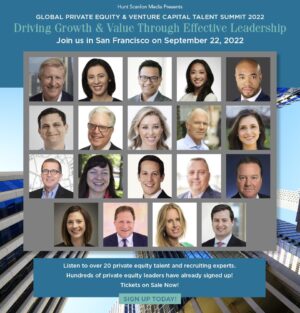Jobless Claims Jump 230,000 as Omicron Surges

January 13, 2022 – The Labor Department reported that 230,000 Americans have filed new claims for state unemployment benefits, an increase of 23,000 from the previous week’s unrevised level of 207,000. The four-week moving average was 210,750, an increase of 6,250 from the previous week’s unrevised average of 204,500. The advance number for seasonally adjusted insured unemployment during the week was 1,559,000, a decrease of 194,000 from the previous week’s revised level. This is the lowest level for insured unemployment since June 2, 1973 when it was 1,556,000. The previous week’s level was revised down by 1,000 from 1,754,000 to 1,753,000. The four-week moving average was 1,721,500, a decrease of 77,000 from the previous week’s revised average. This is the lowest level for this average since March 7, 2020 when it was 1,714,500. The previous week’s average was revised down by 250 from 1,798,750 to 1,798,500.
For employers, the recent record surge of COVID-19 cases driven by the Omicron variant could result in further staffing shortages. “Unfortunately, the Omicron COVID wave has added a new thread of disruption to supply chains and the availability of workers, many of whom are ill, testing positive or otherwise unable or unwilling to report to work,” said Mark Hamrick, Bankrate.com senior economic analyst.
“High inflation is a severe threat to the achievement of maximum employment,” Federal Reserve Chair Jerome Powell said during his renomination testimony before the Senate Banking Committee on Tuesday. “If inflation does become too persistent — if these high levels of inflation get entrenched in our economy and people’s thinking — then inevitably that will lead to much tighter monetary policy from us, and it could lead to a recession, and that would be bad for workers.”
There were 9,619 continued weeks claimed filed by former Federal civilian employees during the week, an increase of 197 from the previous week. Newly discharged veterans claiming benefits totaled 4,551, an increase of 315 from the prior week. The highest insured unemployment rates in the week were in Alaska (3.2), Minnesota (2.6), California (2.5), New Jersey (2.4), Illinois (2.3), New York (2.3), Massachusetts (2.1), Rhode Island (2.1), Connecticut (2.0), and Oregon (1.9). The largest increases in initial claims for the week were in New York (+8,812), Pennsylvania (+6,772), Connecticut (+6,020), Washington (+4,626), and Michigan (+3,923), while the largest decreases were in Missouri (-1,086), Tennessee (-674), Puerto Rico (-329), Rhode Island (-288), and New Mexico (-101).
Looking Forward
Employers in 32 percent of U.S. businesses surveyed expect an increase in payrolls during the next three months, while three percent expect to trim payrolls and 63 percent anticipate no change, according to the latest “Employment Outlook Survey,” released by ManpowerGroup. “Employers are ready to bring their workers back as restrictions lift and America gets ready to work,” said Becky Frankiewicz ManpowerGroup president, North America. “Yet childcare challenges, health concerns and competition mean demand still outstrips supply which is dampening the ‘big return’ of the American workforce. It’s a worker’s market and employees are acting like consumers in how they are consuming work – seeking flexibility, competitive pay and fast decisions.” Now is the time for employers to get creative to attract talent, she said, “and to hold onto the workers they have with both hands.”
According to the study, payroll gains were expected in all 12 U.S. industry sectors: leisure and hospitality (+41 percent), wholesale and retail trade (+29 percent), education and health services (+27 percent), transportation & utilities (+26 percent), durable goods manufacturing (+25 percent), nondurable goods manufacturing (+25 percent), professional and business services (+21 percent), construction (+19 percent), information (+18 percent), other services (+16 percent), financial activities (+15 percent) and government (+15 percent).
Related: Major Paradigm Shifts Coming Out of the Coronavirus Crisis
Contributed by Scott A. Scanlon, Editor-in-Chief; Dale M. Zupsansky, Managing Editor; and Stephen Sawicki, Managing Editor – Hunt Scanlon Media













